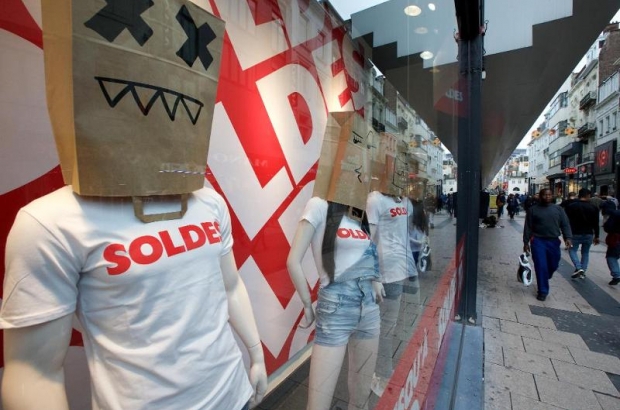- Daily & Weekly newsletters
- Buy & download The Bulletin
- Comment on our articles
Sales start on 1 July: Businesses hope to boost turnover, new guarantees for customers
With the annual summer sales starting on Friday 1 July, traders are banking on attracting customers with initial markdowns of 30% and 40% in an attempt to boost turnover still impacted by the health crisis.
"The cost of energy and the cost of fuel means that the fear may be that the consumer is turning away or in any case saving for perhaps more complicated months," says secretary general of the Neutral Union of Independents (SNI) Christophe Wambersie.
"We hope that the consumer reacts rather positively by telling themselves that the sales are precisely the time to make good deals and to buy and therefore to fight inflation and maintain their purchasing power. So we say to consumers: go ahead, support traders and participate in the sales," he added.
New rules for businesses
Two changes come into force for businesses, providing customers with better guarantees when making purchases. The first is a modification of the European regulations, which require reductions to indicate the starting price. It’s not allowed to inflate the price and then mark down the item by 30% or 40%.
This price must be the lowest for the previous 30 days. "It's a logical and legitimate measure," responds Wambersie. "And I want to reassure consumers directly that all merchants are completely honest in their sales. But nevertheless, there are always people who may be trying to take advantage of a system or a model."
Another change introduced on 1 July is the obligation to offer at least one electronic payment method in shops, liberal professions, food and drink outlets and some administration offices in contact with citizens. "We can continue to pay in cash," he points out, "but indeed, if the consumer asks to pay electronically, whether it's an application, whether it's software or even a banking terminal, there is now an obligation to be able to offer a solution."
Bank terminal obligation expensive for traders
It's a requirement that can be expensive for merchants: “We were not in favour of this measure. Having a bank terminal varies between 100 and 900 euros per year in terms of purchase, 100 or 200 euros in terms of rental, plus commissions on transactions", says Wambersie.
He calls for transparency in the software and apps market. “There are two big winners today in It's the banks, quite simply because managing less cash means less cost, so there are savings, and it's obviously the operators selling electronic solutions who find themselves in a constrained market.”
Wambersie calls on economy minister Pierre-Yves Dermagne for market regulation and provide traders with a financial incentive. “We want a reduction in costs, either for rental or purchase, but above all for the transaction, since you need to know that with every transaction there is a commission which can range from 1% to just over 2% on every purchase."
Photo: Belga

















